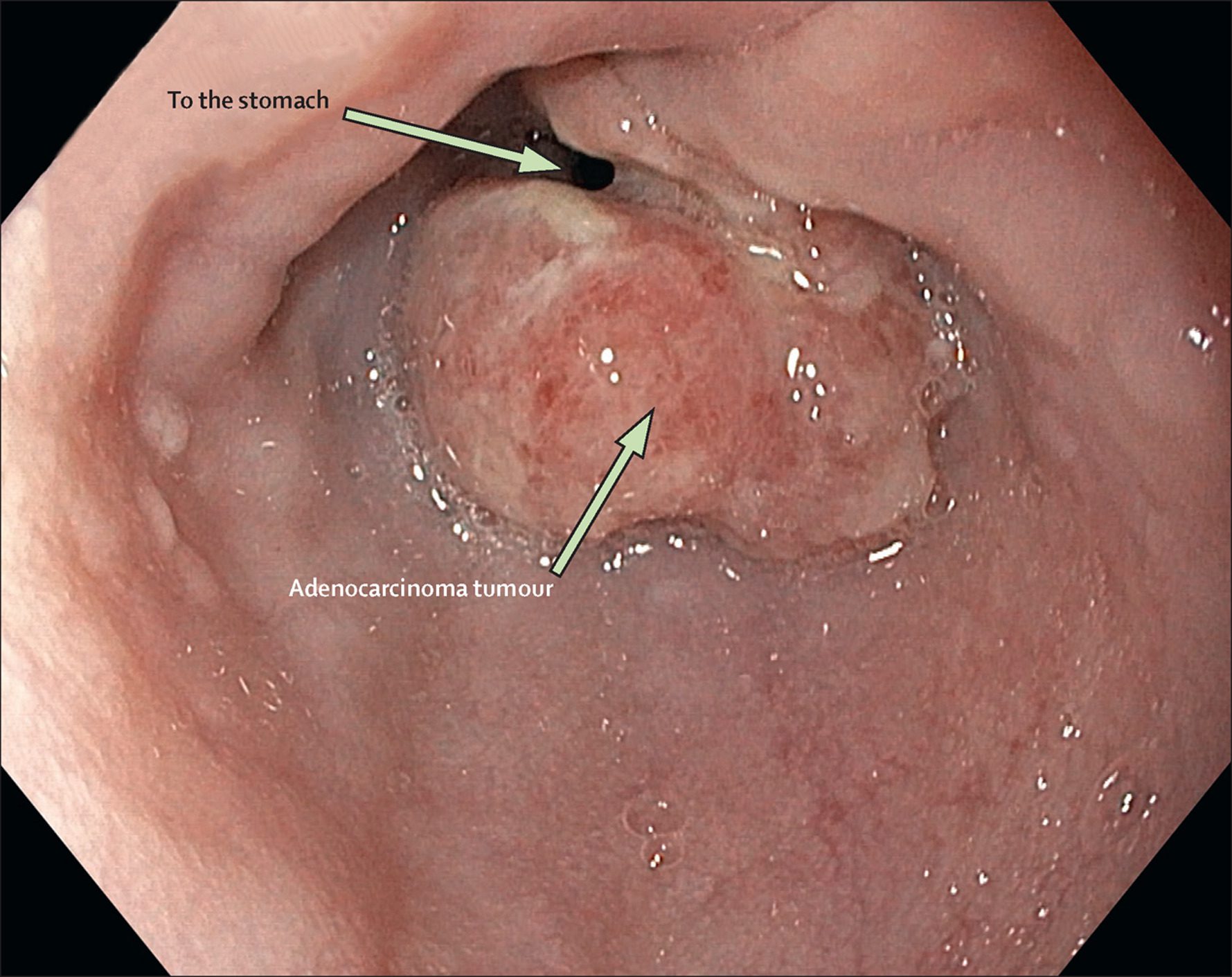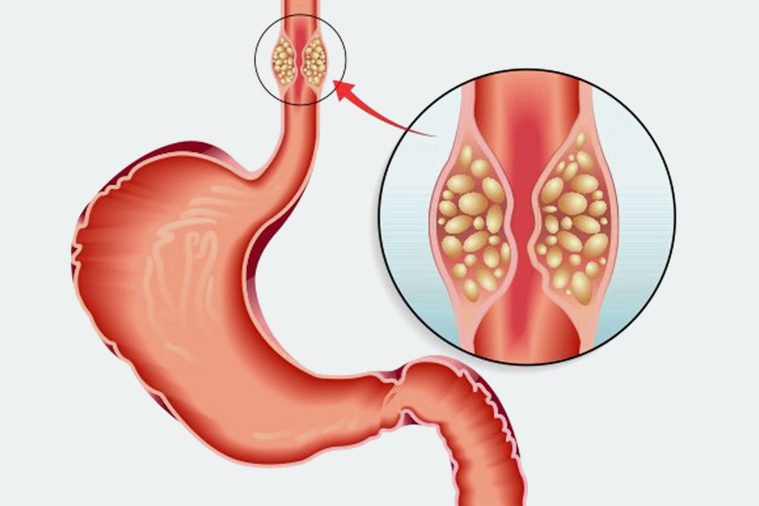Oesophageal cancer remains a significant health challenge in Uganda, ranking as the fifth most common cancer and the second leading cause of cancer-related deaths in the country, after cervical cancer.
The Uganda Cancer Institute (UCI) has been at the forefront of addressing this issue through research, treatment, and community outreach.
This article delves into the nature of oesophageal cancer, its risk factors, and preventive measures, with a focus on the Ugandan context.
What Is Oesophageal Cancer?
Oesophageal cancer is a malignant growth in the oesophagus, the muscular tube connecting the throat to the stomach. The two main types are:
- Esophageal squamous cell carcinoma (ESCC): Originates in the squamous cells lining the upper and middle parts of the ooesophagus. This is the dominant form in Africa and other less developed regions.Globally, ESCC accounts for 85% of all oesophageal cancer cases, and in Africa, it is responsible for an overwhelming 90% of all cases.
- Esophageal adenocarcinoma (EAC): Develops in the glandular cells in the lower oesophagus. It is more common in developed countries, particularly in the West.
Symptoms often emerge in advanced stages and may include:
- Difficulty swallowing (dysphagia)
- Unexplained weight loss
- Persistent heartburn or indigestion
- Hoarseness or chronic cough
- Pain behind the breastbone

Key Risk Factors in Uganda
- Indoor Air Pollution
In Uganda, many households rely on biomass fuels like firewood and charcoal for cooking.
The resulting smoke contains carcinogens that, when inhaled over time, increase the risk of oesophageal cancer.
A study in the Eastern African countries highlighted that using wood for cooking was associated with a significantly higher risk of developing the disease.
- Consumption of Very Hot Beverages
Drinking beverages at temperatures above 65°C can damage the esophageal lining, leading to inflammation and an increased risk of cancer. This practice is common in many cultures, including parts of Uganda, and poses a significant risk.
- Poor Oral Hygiene
Neglecting oral health can lead to the growth of harmful bacteria in the mouth, which may contribute to the development of oesophageal cancer. Maintaining good oral hygiene is essential for overall health and cancer prevention.
- Unhealthy Diet
A diet lacking in fruits and vegetables and high in processed meats can increase the risk of oesophageal cancer. In Uganda, where dietary patterns may include high consumption of starchy foods and low intake of fresh produce, is a significant concern.
- Tobacco Smoking
Smoking is a well-established risk factor for oesophageal cancer. In Uganda, tobacco use is prevalent, especially among men, and contributes to the high incidence of the disease.
- Alcohol Consumption
Regular alcohol consumption increases the risk of oesophageal cancer. In Uganda, where alcohol consumption is culturally ingrained, with 44.6 percent and 19.1 percent of current alcohol drinking prevalence in men and women respectively (non-communicable disease risk factors survey of 2023), this poses a significant risk factor.
- Dental Fluorosis
Excessive fluoride intake, leading to dental fluorosis, has been linked to an increased risk of oesophageal cancer. In areas with high natural fluoride levels in water, such as parts of Uganda, this is a concern.
- Low Socio-Economic Status
Individuals from lower socio-economic backgrounds may have limited access to healthcare, nutritious food, and education, increasing their risk of developing oesophageal cancer. In Uganda, poverty is a significant determinant of health outcomes.
Prevention and Control Strategies
- Improve Cooking Practices
Adopting cleaner cooking technologies, such as improved cookstoves or transitioning to cleaner energy like electricity and fuels like liquefied petroleum gas (LPG), can reduce indoor air pollution and lower the risk of oesophageal cancer.
- Educate on Safe Beverage Temperatures
Individuals and families are advised to allow hot drinks such as tea, coffee, and porridge to cool to lukewarm temperature before drinking.
Public health campaigns should educate communities about the dangers of consuming very hot beverages and encourage allowing drinks to cool to a safer temperature below 65°C.
- Promote Oral Hygiene
Individuals need to practice regular brushing of their teeth, flossing, and dental check-ups.
Community oral health programs should emphasize the importance of regular brushing, flossing, and dental check-ups to maintain good oral health and reduce cancer risk.
- Encourage Healthy Eating Habits
Adopt and promote balanced diet, that is, eating varieties of healthy food – diet rich in fruits, vegetables, and whole grains, and low in processed meats, to help reduce the risk of oesophageal and other types of gastrointestinal cancers. Community nutrition programs can play a vital role in this.
- Tobacco Control Initiatives
Implementing tobacco control policies, such as smoking cessation programs and public smoking bans, can reduce tobacco use and lower cancer risk.
- Regulate Alcohol Consumption
Public health campaigns should raise awareness about the risks of excessive alcohol consumption and promote moderation.
- Monitor and Regulate Fluoride Levels
Ensuring that fluoride levels in drinking water are within safe limits can prevent dental fluorosis and reduce cancer risk.
- Address Socio-Economic Determinants of Health
Improving access to healthcare, education, and nutritious food can help reduce the incidence of oesophageal cancer among low socio-economic groups.
Uganda Cancer Institute’s Role
The Uganda Cancer Institute (UCI) plays a pivotal role in addressing oesophageal cancer and other types of cancers through its Comprehensive Community Cancer Services (CCS). This program focuses on cancer prevention (risk reduction), early detection through cost-effective screening and diagnosis strategies, and promoting access to treatment. Key activities include:
- Community Outreach: Conducting cancer education and screening in various communities
- Routine cancer screening within the health facilities
- Mass media campaignsto improve on the level of cancer awareness in the general public
- Education Materials: Developing and distributing cancer education materials.
- Training Health Workers: Training healthcare providers to improve the level of awareness and suspicion among the health workers and the communities they serve.
- Research: Conducting research to inform cancer control strategies.
Through these initiatives, UCI aims to reduce the burden of oesophageal cancer in Uganda.
Conclusion
Oesophageal cancer is a preventable disease, and understanding and avoiding its risk factors is the first step toward reducing its impact. By adopting healthier lifestyles, improving cooking practices, and addressing socio-economic determinants of health, Uganda can significantly lower the incidence of this deadly disease.
Public awareness and community engagement are crucial in this endeavor.
Written by Dr. Jackson Orem






